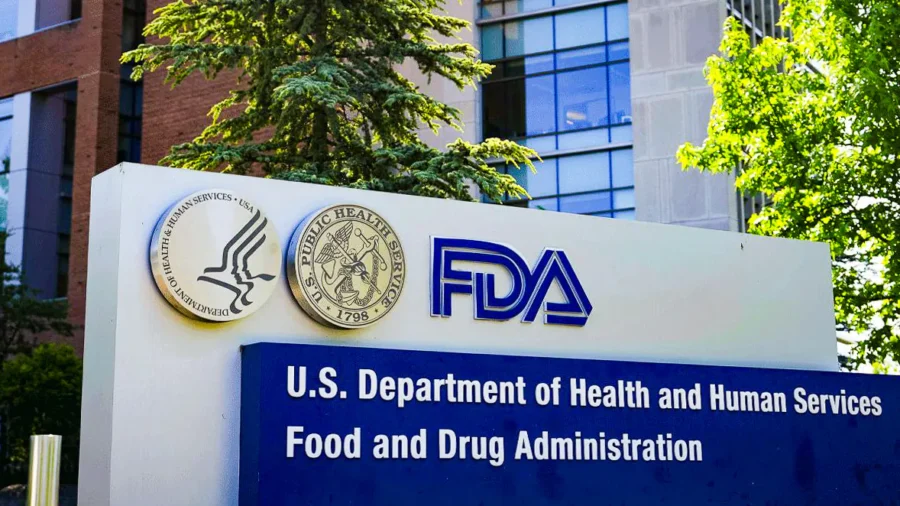The U.S. Food and Drug Administration (FDA) on Aug. 22 approved new COVID-19 vaccines from Moderna and Pfizer-BioNTech.
The shots, based on messenger ribonucleic acid technology (mRNA), target the KP.2 strain.
“These updated vaccines meet the agency’s rigorous, scientific standards for safety, effectiveness, and manufacturing quality,” Dr. Peter Marks, director of the FDA’s Center for Biologics Evaluation and Research, said in a statement.
“Given waning immunity of the population from previous exposure to the virus and from prior vaccination, we strongly encourage those who are eligible to consider receiving an updated COVID-19 vaccine to provide better protection against currently circulating variants.”
The FDA in the fall of 2023 cleared the previous round of COVID-19 vaccines, but according to federal data, the protection from those shots plummeted over time.
Data from one U.S. Centers for Disease Control and Prevention, for instance, showed that the protection against hospitalization peaked at just 31 percent and plunged to 4 percent after several months.
That data and other information prompted the FDA to follow the recommendation of its advisers and over the summer direct manufacturers to update their vaccines.
The advisers said the new vaccines should target JN.1. The FDA initially agreed, but later changed course and said they should target KP.2.
Moderna and Pfizer opted to target KP.2, while a forthcoming vaccine from Novavax is expected to target JN.1.
None of the manufacturers have offered clinical data for the vaccines. They’ve said that testing in animals shows the shots trigger neutralizing antibodies.
“The mRNA COVID-19 vaccines have been administered to hundreds of millions of people in the U.S., and the benefits of these vaccines continue to outweigh their risks,” the FDA said.
Side effects of the vaccines include heart inflammation and headache.
Officials have said they plan to clear new shots every fall, similar to the cadence for influenza vaccines.
Under Thursday’s move, children aged 6 months to 4 years of age who have never been vaccinated can receive three doses of the Pfizer vaccine and two doses of the Moderna vaccine. Those who have previously received a COVID-19 vaccine can receive one or two doses of either shot.
People aged 5 and up can receive a single dose of either vaccine, regardless of prior vaccination.
Pfizer has not yet reacted to the clearance.
Stephane Bancel, Moderna’s CEO, said that the Massachusetts company welcomed the move.
“We appreciate the U.S. FDA’s timely review and encourage individuals to speak to their healthcare providers about receiving their updated COVID-19 vaccine alongside their flu shot this fall,” Bancel said in a statement.
Moderna said it expects its vaccine to be available to the public within days.
COVID-19 recently reached very high levels in 32 states and the District of Columbia, federal health officials said earlier this month, citing wastewater data.
About 18 percent of recorded COVID-19 tests over the past week returned positive, up about one percent from the prior two weeks, the CDC said. Weekly emergency room visits linked to COVID-19 were down, although deaths linked to the disease have recently increased, the agency said.
The most prevalent variant at this time is KP.3, followed by KP.2.3 and LB.1, according to CDC genomic data. Estimates for the two weeks ending on Aug. 17 pegged KP.3.1.1 as being the most prevalent variant.
A spokesperson for the CDC told The Epoch Times in an email that KP.3.1.1 “is very similar to other circulating variants in the United States, and all current lineages are descendants of JN.1, which emerged in late 2023.”
Jack Phillips contributed to this report.
From The Epoch Times

